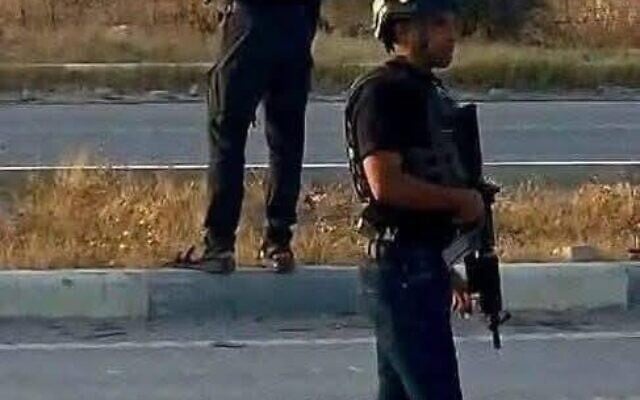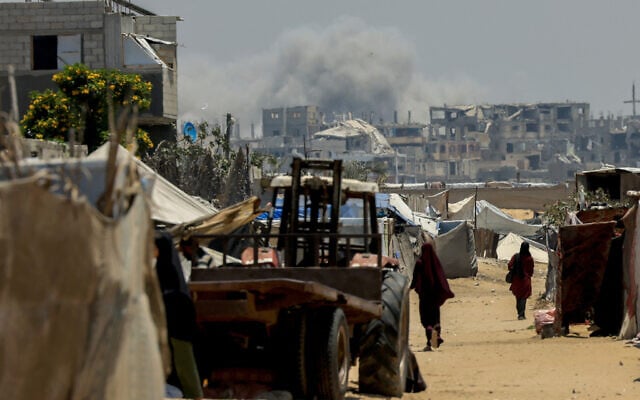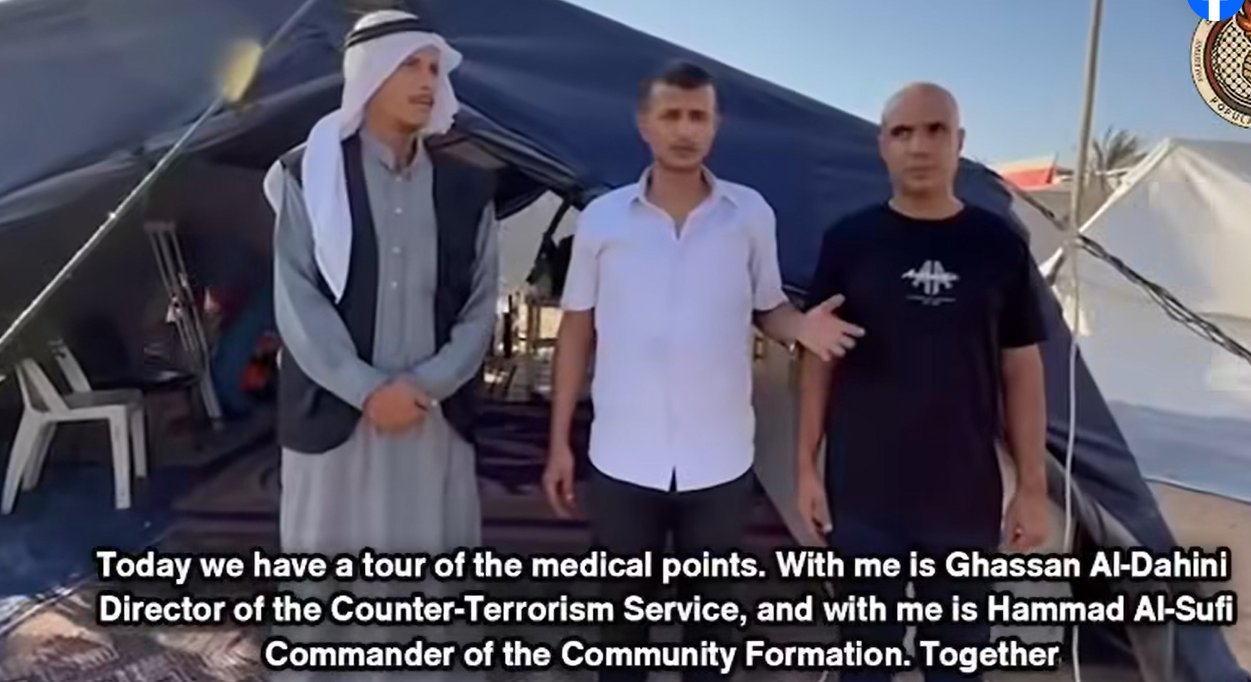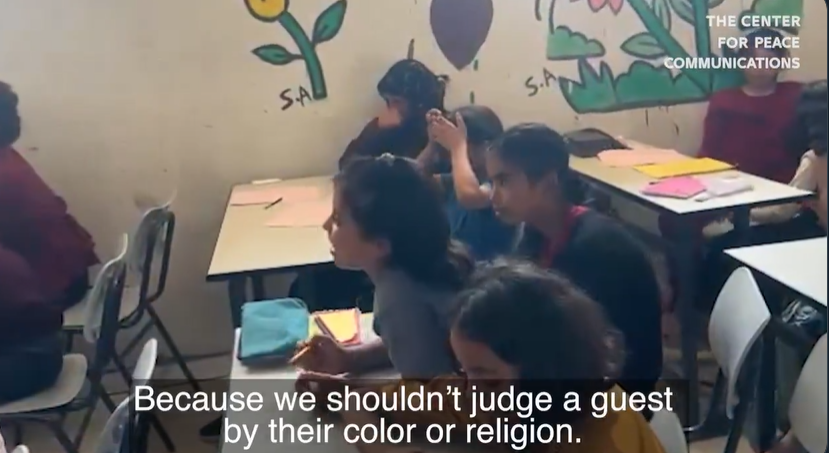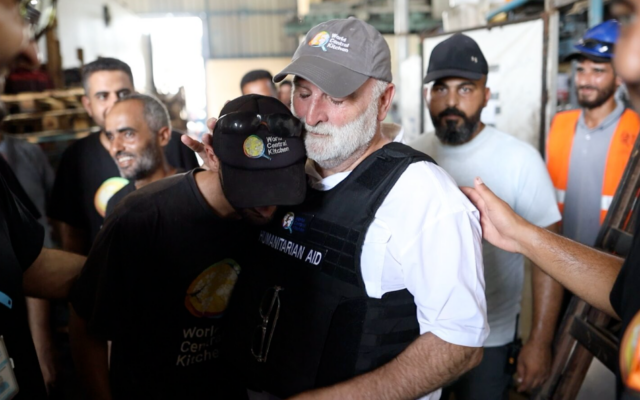


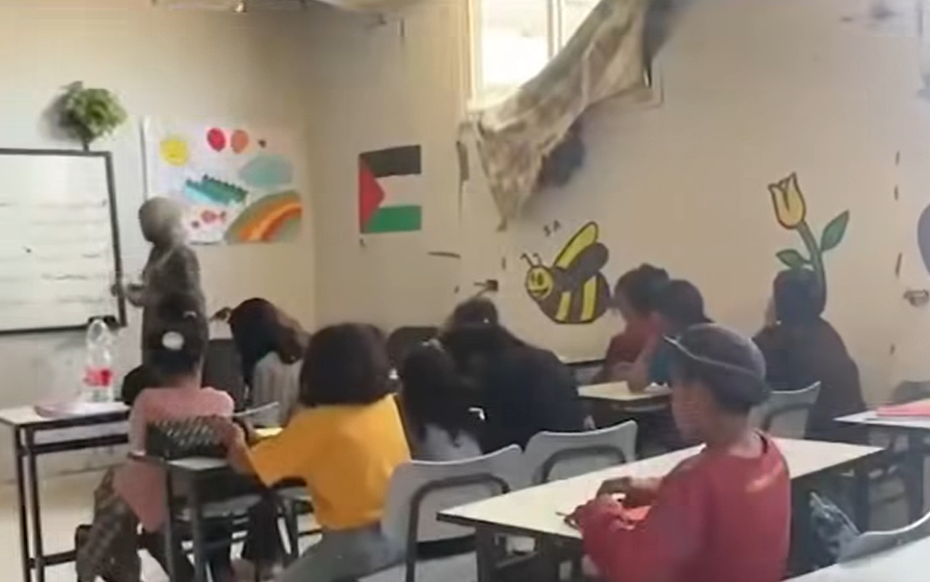
For nearly two years, schools across the Gaza Strip have been largely shut down.
But in eastern Rafah, a rare exception has emerged: a small school operating in an area controlled by the Abu Shabab clan — an anti-Hamas group with possible ties to Israel and a questionable past — that now serves more than 100 kids from kindergarten through seventh grade.
The school eschews Palestinian Authority textbooks previously prevalent in Gaza, with teachers apparently recruited from among displaced Palestinians living in a part of Gaza controlled by the Israel Defense Forces and appears to educate pupils along progressive ideas of pluralism and tolerance.
“We want to create a generation of learners, not terrorists,” said Mohammed, a senior member of Abu Shabab’s forces, in a phone interview with The Times of Israel.
(Mohammed and all others who spoke to The Times of Israel for this article requested that they only be referred to by fictitious names to preserve their anonymity.)
In central Gaza, another school has also sprung up, with a similar stated mission of educating children away from hate.
Both initiatives appear to address longstanding Israeli concerns regarding Palestinian education, which critics say includes content that incites against Israelis and Jews, perpetuating narratives that fuel distrust and conflict rather than coexistence.
According to footage published online, some of it by the Abu Shabab group, and members of Abu Shabab’s forces who talked to the Times of Israel, the clan has established both security structures, but also civilian infrastructure to support several thousand Palestinians living in an area of Rafah under full security control of the IDF.
Infrastructure in place includes electricity, water, a medical center and the school itself, which serves around 130 children.
The head of the clan, Yasser Abu Shabab, is a Bedouin Palestinian from Rafah who was little known in Gaza or Israel before October 7. Arab media reports have linked him to criminal activity, including theft and drug trafficking, and describe him as the leader of a family-based militia.
According to Al Jazeera, Abu Shabab was jailed at one point by Hamas, but he has denied these claims, telling the Sunday Times in July that before the war, he was merely a construction worker with no military experience.
Hamas has accused the Abu Shabab militia of stealing humanitarian aid to sell for profit. A leaked UN memo reported on by The Washington Post in November 2024 described him as “the primary and most influential figure behind systematic looting of aid convoys.”
There is evidence to suggest that the group, whose members are wanted by Hamas, is now operating under the aegis or tacit consent of Israel in areas of Gaza under IDF security control, though it has not been confirmed.
A video published on the official Abu Shabab Facebook page on June 3 showed the forces hosting displaced families in tents, guarding aid trucks and distributing food packages, though it is unclear if the group was acting under any authorization or had seized the aid.
Satellite analysis published in Haaretz geolocated the group’s activities to an area between the Morag Corridor and Rafah, which has been under Israeli control since April.
On June 5, Israel admitted to supplying weapons to “Bedouin groups in Rafah to weaken Hamas,” without confirming reports that it was supporting Abu Shabab directly.
According to Mohammed, Abu Shabab — which describes itself as “The Popular Forces” had built a de facto local administration in the area over the last few months.
“The medical and educational centers are part of the Popular Forces,” he said. “They brought in teachers, provided generators for electricity and drilled wells for water.”
In an August 10 video posted on the clan’s official Facebook page, Yasser Abu Shabab and two men, presented as senior members of his forces, are seen showing off the school, medical center and a kitchen serving daily meals to displaced families.
“There are 5,000 displaced people here,” Mohammed said. “Some families have 20 members, others just two after losing relatives in the war.”
Another armed clan member, Issa, confirmed to The Times of Israel that the group has been operating in the area for about six months. He said more displaced families were expected, but their arrival was delayed due to IDF activity nearby.
In June, Yasser Abu Shabab told Israel’s Army Radio that he was not collaborating with the IDF. “We do not work with Israel. Our goal is to defend Palestinians from Hamas terror. Our weapons are simple, collected locally,” he said.
Weeks later, however, the Kan broadcaster aired another interview with a man purporting to be Abu Shabab in which he acknowledged working with the IDF. However, the clan denied that the speaker was Yasser Abu Shabab.
The fact that entry to the area requires IDF coordination suggests, at a minimum, tacit Israeli approval.
The IDF declined to comment when contacted by The Times of Israel.
One of the key projects in the clan-controlled area is the new school.
“We have six classrooms with 25 to 35 students each, from kindergarten to seventh grade,â€� Mohammed explained.
According to him, teachers were recruited from among the displaced Palestinians in the area.
Schools across Gaza have been shut since war erupted on October 7, 2023, except for some facilities that opened during a two-month ceasefire in January and February.
Before the war, Gaza’s schools, many of which were run by the UN agency for Palestinian refugees UNRWA, were criticized for indoctrinating children to hate Israelis and Jews.
Curriculum used by UNRWA and PA textbooks, which had been used in Gaza even after Hamas seized control of the Strip in 2007, were accused of promoting violence and terrorism against Israel, fueling hatred for future generations, critics said.
The Rafah school appears to have embraced a different path, though the source of its curriculum is unclear.
“We want a curriculum that replaces terror and violence with learning,” Mohammed said. For now, lessons are oral, not based on the flawed Palestinian Authority textbooks.”
In the Facebook video, a teacher can be seen leading a class discussion on human rights. A girl named Jamila recites that: “Human rights belong to everyone and are only restricted when they conflict with the law.”
On August 12, the Center for Peace Communications, a US-based nonprofit that supports inter-ethnic dialogue in the Middle East, published a separate video of the School.
In the video, a teacher explains hospitality, equality and freedom.
“Can I take a girl and lock her away?â€� she asks the class. “No, she has a right to freedom.â€� She also warns against discrimination based on religion or ethnicity.
The teacher in the video identifies herself as Samira Abu Mousa, with degrees from the Islamic University and Al-Aqsa University. She says her opposition to Hamas stems from discrimination she faced in seeking teaching jobs without political connections.
“I and people like me long for peace, hope and security,” she tells the class.
In a subsequent post, the center wrote that it filmed the video in July, calling the area under Abu Shabab control a “pilot” for a “future free of Hamas.”
It is not clear if there is any relationship between the center and Abu Shabab. The center declined to comment.
Mohammed admitted that the forces have “partners” with whom they are trying to develop civilian activity in the area, including at the school, but did not provide further details.
According to Issa, new equipment for the school arrived via the Kerem Shalom crossing recently, including computers and notebooks that he said had been donated by foreign groups and Arab-Israeli citizens. He declined to elaborate further.
In central Gaza, a separate initiative has launched a school for 600 displaced children in Deir al-Balah, an area with little Israeli ground presence but hundreds of thousands of refugees.
The school was established by Dr. David Hassan, a Palestinian-American physician, with support from the Israeli aid group SmartAID. It enrolls orphans from kindergarten through ninth grade and provides two daily meals with help from World Central Kitchen. Founder José Andrés visited the school during his August 15 trip to Gaza.
Unlike the Abu Shabab effort, the school in Deir al-Balah still uses PA textbooks, albeit with modifications.
“We took the PA textbooks and only changed words,” Hassan told The Times of Israel over the phone. “We didn’t want to write something new, just fix problematic content. Our teachers are all women, carefully vetted to ensure no Hamas ties. Our vision is to reach 5,000 children. If we fail, there will be no other education without hate.”
According to Mohammed, aside from the school, the area under Abu Shabab administration also includes a medical center staffed by displaced doctors and nurses.
“We monitor chronic diseases, emergencies and provide medication for the elderly,” he said.
The clan member expressed hope that Gaza would in the future be administered by a “third option” that is neither Hamas nor Israel.
“We don’t like Hamas, we fought them, and we know life will be better without them,” Mohammed said. “What matters most is humanitarian action here in Rafah — because it ends terror and gives people the chance to live in peace and security.”

